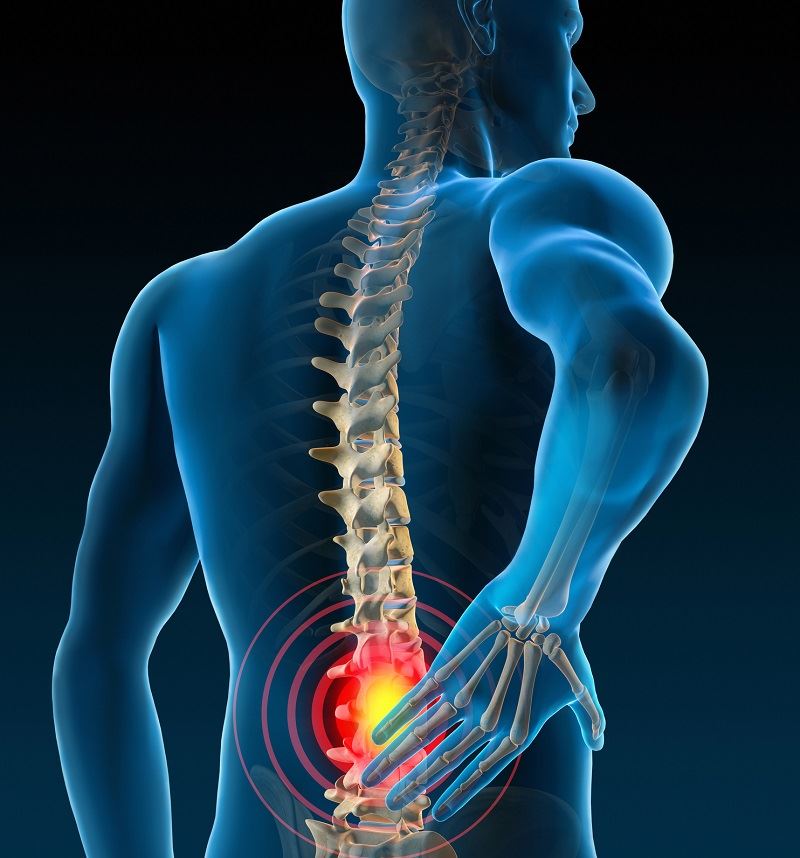All About That Back (Pain)
Many Americans will experience back pain at some point in their lives. In 2016 alone, 38.5% of people in the U.S. suffered from back pain related to their job.
As health care workers, we try to focus on prevention of disease and illness. But when a patient has an existing disease or illness, the focus changes. At that point, the goal is to improve one’s life through the available treatment options — which can include non-surgical and surgical options.
Here are some of the most common questions I hear from back pain patients and my recommendations:
What can I do to prevent myself from having back surgery?
- If you are a nicotine user, consider quitting. Literature shows that using nicotine advances the normal age-related changes because it reduces the blood flow to the discs and joints of the spine.
- Work on getting to a healthy weight and lifestyle. This is often an uncomfortable discussion to have with your health care provider, but it is very important. Most people believe the only way to get to a healthier weight is to “exercise” your way out of it. Approximately 80-90% of your weight is due to the amount and type of foods you eat. I encourage our patients to start simply by eliminating one thing from their diet such as pop or snacks after suppertime. Also make it fun by including your family and or support person. Preparing meals as a family can be exciting and educational.
- Physical therapy is a great option if you are struggling with back pain. A physical therapist can teach you ways to strengthen your back, how to lift appropriately and how to prevent reinjury. If you are not to the point of needing physical therapy, keep in mind something is better than nothing. If you are having low back pain, less intense (low impact) exercise may be easier. Some examples of low impact exercises include: walking, bicycling, stretching, yoga or swimming at your local YMCA or gym.
If I need back surgery, what can I do beforehand to improve my recovery after back surgery?
Your health care team always wants you to be in the best state of health before an elective procedure. I like to use the metaphor of tuning up your car before going on a road trip. The three main things to work on are:
- Nicotine. Nicotine use affects blood flow which delays healing and increases your risk for a wound infection, after surgery. In addition, if you are offered a low back fusion, literature shows that nicotine use increases your risk of your bones not fusing and can also cause the hardware to loosen, which could increase your risk for more spine fusion surgery.
- Diabetes. If you are a diabetic, work with your primary care provider or endocrinologist (a diabetes specialist) on improving your hemoglobin A1C to eight or lower. But please keep in mind that your neurosurgery provider may have a different hemoglobin A1C goal for you than your primary care provider. Research shows that optimal control of your diabetes reduces the risk of an infection after surgery.
- Weight. Work on getting to a healthier weight. Your health care team is passionate about ensuring you have a successful outcome from surgery. Body mass index (BMI) has different classes of obesity. For example, one, two or three. The higher the BMI and the higher class, the more concern there is about you being at an unhealthy weight. Please note that BMI is a tool to help us give an idea on how healthy or unhealthy you are. It is not the only value and or number we look at. In general, the higher the class of your obesity, the more likely you are to have a complication after surgery. Also, if you are not at a healthy weight, an elevated BMI can increase your length of surgery time with cutting through more tissue and places more stress on the incision.
Remember, you only have one body, so together — let us help you take care of it!
